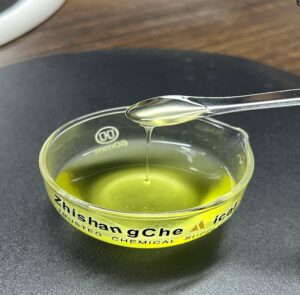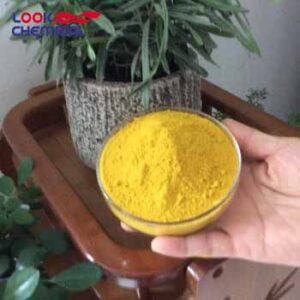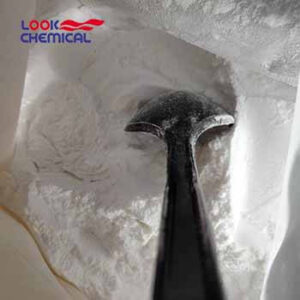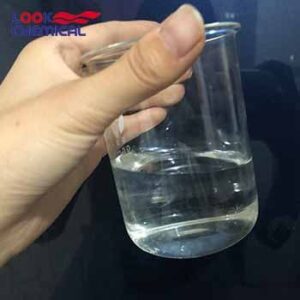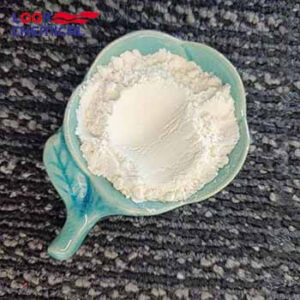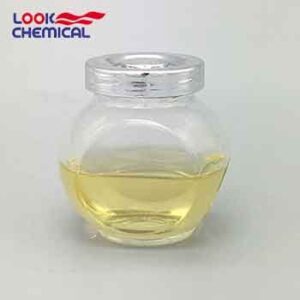
Name: Retinoic acid
Cas: 302-79-4
Purity: 99%
MOQ: 1KG
Directory Guidance on Retinoic acid
Chemical Structure
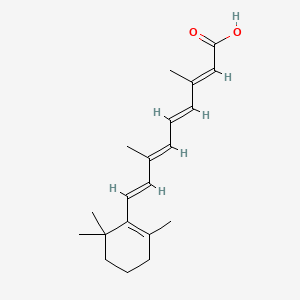
Basic Info
Retinoic acid, also known as retinoic acid, is an intermediate product of vitamin A metabolism in the body. It is a commonly used dermatological medication in clinical practice and is widely used. Retinoic acid can promote epithelial cell proliferation and differentiation, affect skin metabolism, inhibit sebaceous gland lipid secretion, promote keratinization, improve follicular sebaceous gland duct keratinization, and have anti-inflammatory effects.
The molecular formula of Retinoic acid is C20H28O2, which is a yellow crystalline powder. It is slightly soluble in water but easily soluble in organic solvents such as ethanol, dimethyl sulfoxide (DMSO), and chloroform. Its melting point is 180-182 ° C, which is unstable under light and high temperature conditions and needs to be stored away from light.
The chemical structure of Retinoic acid contains a carboxylic acid group and a conjugated polyene chain, which gives it strong biological activity and antioxidant properties. Due to its double bond structure, Retinoic acid is prone to oxidation reactions, so it is necessary to avoid contact with oxidants during storage and use.
Product Introduction
| Retinoic acid Chemical Properties |
| Melting point | 180-181 °C (lit.) |
| Boiling point | 381.66°C (rough estimate) |
| density | 1.0597 (rough estimate) |
| refractive index | 1.4800 (estimate) |
| storage temp. | -20°C |
| solubility | Practically insoluble in water, soluble in methylene chloride, slightly soluble in ethanol (96 per cent). |
| pka | 4.73±0.33(Predicted) |
| form | powder |
| color | yellow |
| biological source | synthetic (organic) |
| Water Solubility | insoluble |
| Sensitive | Light Sensitive |
| Merck | 14,8165 |
| BRN | 2057223 |
Product Name | Retinoic acid |
brand | China Lookchemical |
Specification | 99% |
MOQ | 1KG |
Storage conditions | Store in cool & dry place, Keep away from strong light and heat. |
Sample | Available |
Product Packaging
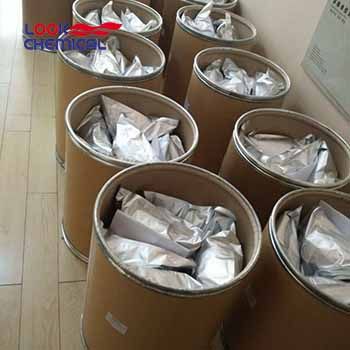
Retinoic acid is a vitamin A derivative with extensive biological activity, which has important applications in fields such as medicine, cosmetics, scientific research, and agriculture.
NO 1. Retinoic acid inhibits the growth environment of Propionibacterium acnes by regulating the proliferation and differentiation of hair follicle keratinocytes, reducing keratinocyte embolism.
Retinoic acid can stimulate collagen synthesis in the dermis layer, reduce wrinkles, pigmentation, and skin sagging caused by ultraviolet (UV) radiation, and is clinically used to treat photoinduced skin diseases.
Retinoic acid can inhibit excessive epidermal proliferation and improve keratinized skin diseases such as psoriasis and ichthyosis.
NO 2. Retinoic acid promotes epidermal renewal, accelerates stratum corneum shedding, promotes new cell generation, and makes the skin smoother and more delicate.
By activating fibroblasts, Retinoic acid can reduce fine lines and improve skin elasticity, making it a core ingredient in anti-aging skincare products.
Retinoic acid inhibits tyrosinase activity, reduces melanin production, and is used to treat pigmentary diseases such as melasma and acne scars.
NO 3. Retinoic acid significantly improves the remission rate of APL patients by inducing cancer cell differentiation rather than direct killing, and is often used in combination with arsenic agents. Retinoic acid can also show potential anti-tumor effect in breast cancer, prostate cancer, neuroblastoma and other studies, which may be achieved by regulating tumor microenvironment or inhibiting angiogenesis.
NO 4. Retinoic acid is a key signaling molecule for the development of limbs, heart, and nervous system in vertebrates, and is commonly used in the study of congenital malformations. In vitro culture, Retinoic acid can induce embryonic stem cells or induce pluripotent stem cells to differentiate into nerve cells, cardiomyocytes, etc.
NO 5. Retinoic acid promotes regulatory T cell differentiation and inhibits Th17 cells, which may be used in autoimmune diseases.
Retinoic acid is synthesized by dendritic cells in the intestine and affects mucosal immunity. Study its role in inflammatory bowel disease.
NO 6. Treatment of ophthalmic diseases
Retinoic acid promotes the proliferation of corneal epithelial cells and is used for repair after dry eye syndrome or chemical burns.
Retinoic acid is involved in visual pigment metabolism, and its role in age-related macular degeneration and retinitis pigmentosa is studied.
Retinoic acid has become a hot topic in interdisciplinary research due to its diverse biological functions.
Related References
Wikipedia-Retinoic acid
Manufacturer of Retinoic acid
China Lookchemical is based in Shandong, serves the whole country, faces the world, and is determined to become an excellent supplier and service provider in the chemical industry.
As a top manufacturer of surfactant,cosmetic raw materials, disinfectants, flavors, and fragrances in China, we are committed to producing high-quality products and have won high praise from customers all over the world.
In the next 10 years or even longer, Lookchemical will always adhere to the tenet of quality first and reputation first, and devote itself to providing customers with thoughtful and perfect services.
As a professional Retinoic acid manufacturer, Look Chemical has served more than 6,000 customers around the world. Because of our high-quality products and professional services, we have won high praise from most of our customers.
Pre-Sales Service
*The company cooperates with research institutes. We strictly control the process of raw materials up to the finished product.
*Dedicated to serving customers first, we provide reasonable prices, high quality products and timely delivery and follow-up services.
* Timely reply and 24 hours online, the professional team will provide you with the most favorable prices and high-quality products.
* The sample supports testing and inspection.
* Each batch of products will be tested to ensure that its quality meets user needs.
*Packaging can also be made according to customer requirements.
*Any inquiries will be answered by our relevant personnel within 24 hours.
*We will provide you with commercial invoice, packing list, packing list, COA, health certificate and certificate of origin if you need it. If your market has other special requirements, please let us know.
After-Sales Service
*We will monitor the logistics information in real time and will share the information with you.
* You can consult us at any time if you have any questions about the product, and we will answer you in time.
*If you have any questions about the product, you can report it to us, we will deal with it in time for you, and the product can be returned.
To ensure the convenience of clients,we always set accurate reply for crucial question.Clients will get answer by inputting “keywords”to help clients solve relevant questions.
DO YOU ACCEPT SAMPLE ORDER?
We will make samples before mass production. After the samples are approved by the department and users, we will start mass production. During the production process, we will carry out 100% inspection, and then carry out random inspection before packaging.
WHAT’S YOUR MOQ?
Our MOQ is 1kg. But usually we can also accept a smaller quantity, such as 100g, if you need it, provided that the sample fee is 100% paid.
IS THERE A DISCOUNT?
Different quantity has different discount.
HOW TO CONFIRM WHETHER THE PRODUCT QUALITY MEETS OUR NEEDS BEFORE PLACING AN ORDER?
You can consult us to get free samples of some products, you only need to pay the freight or arrange express delivery to us and get the samples. You can send us the product specifications and requirements you need, and we will manufacture products according to your requirements.
DO YOU SUPPLY PRODUCT REPORT?
Yes. We’ll give you product analysis report before shipping.
LEARN MORE ABOUT US
Shandong Look Chemical
1. For products ≤50kg, we recommend using express delivery, which is usually called DDU service (discounted, convenient).
2. For products ≤500kg, we generally recommend air freight, which is usually called FOB, CFR or CIF service (fast and efficient).
3. For products >500kg, we generally recommend shipping by sea, which is usually called FOB, CFR or CIF service (economical, safe).
4. For high-value products, please choose air or express to ensure the safety of product transportation.
Company Info
At the same time, we can also provide customers with excellent transportation services. Adhere to customer centricity and integrity as the source of development, and gradually improve the company’s various systems. We are high-quality management personnel who have been engaged in chemical trade for many years, with a modern market management philosophy, and constantly explore customer market demands using flexible methods.


